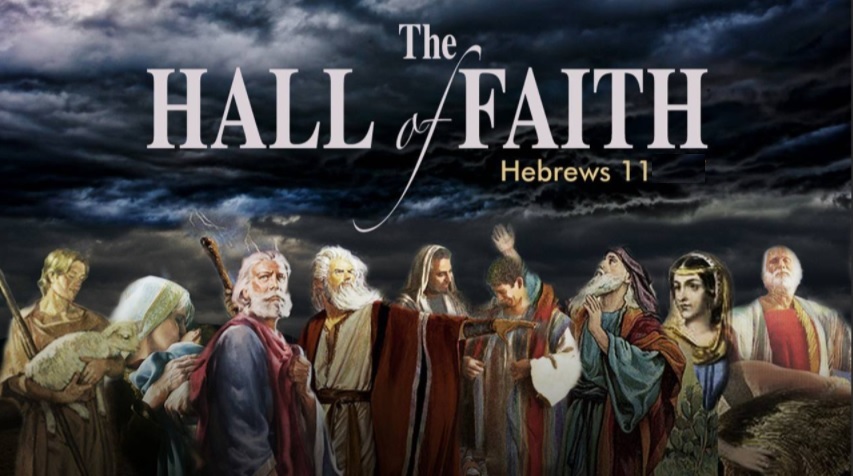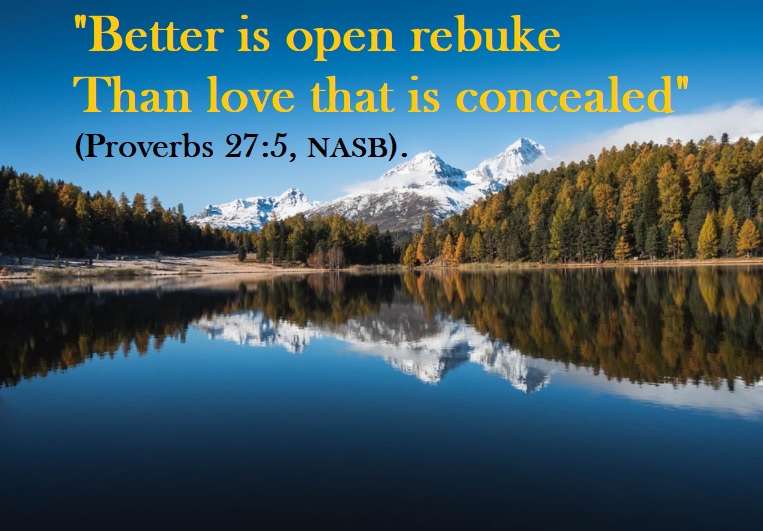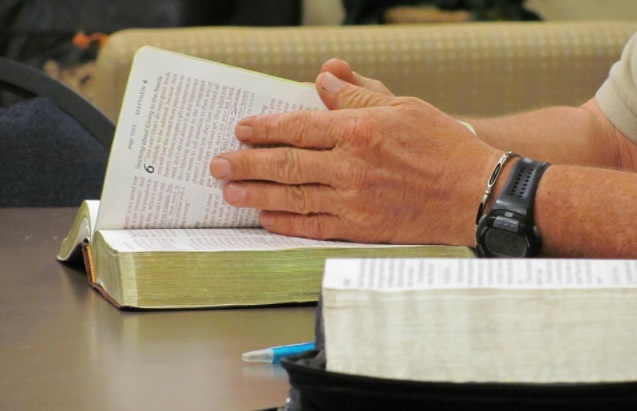“Go therefore and make disciples of all the nations…teaching them to observe all that I commanded you; and lo, I am with you always, even to the end of the age” (Matthew 28:19-20, NASB).
——————–
Contents:
1) The Ascension of Jesus (Heath Rogers)
2) Another Look at Acts 20:7 (Bob Myhan)
3) “I will Guard My Ways, Lest I Sin With My Tongue” (Joe R. Price)
4) God’s Demonstrations (video sermon, Tom Edwards)
5) News & Notes
——————–
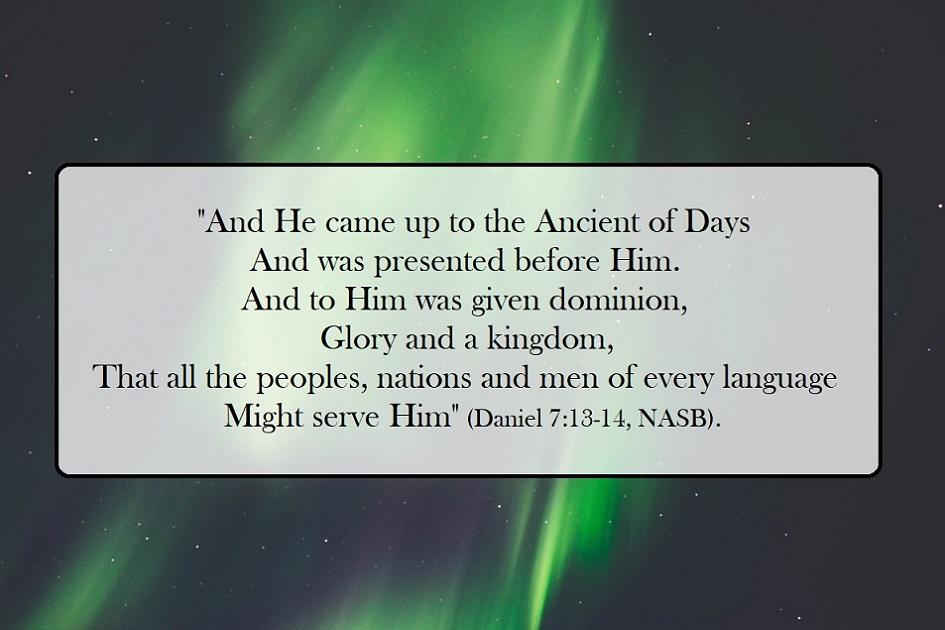
-1-
The Ascension of Jesus
Heath Rogers
Forty days after His resurrection, Jesus took the eleven disciples to the Mount of Olives, blessed them, and was lifted out of their sight into the clouds of the air. Two angels appeared to them and announced that Jesus would come in the same manner as they had just seen him depart (Acts 1:9-11).
The ascension of Jesus is not discussed as much as His death, burial, and resurrection. However, this amazing event should not be overlooked or reduced to a footnote in the life and ministry of Jesus. It was very important.
1. It provided evidence that Jesus is the Messiah. The Jews were always asking Jesus for a sign that would prove His identity. The day after Jesus fed the 5,000, the people wanted Him to feed them again. They hinted at this by asking for a sign and speaking of Moses feeding the fathers with bread from heaven (John 6:30-31). Jesus identified Himself as the bread of God who comes down from heaven and gives life to the world (v. 33). The multitude had a difficult time understanding Jesus, and He further frustrated their understanding when He said, “What then if you should see the Son of Man ascend to where He was before?” (v. 62).
Our Lord’s ascension was one of many pieces of evidence that proved He was the Son of God. If He had failed to ascend back to “where He was before” He would have failed to complete His work and confirm His identity.
Jesus made several predictions about the things He would experience (Matt. 16:21). If any of these had failed to come to pass, Jesus would have been exposed as a false prophet (Deut. 18:18-22). The fact that He ascended into heaven is just as significant as the fact that he was rejected by the Jews, delivered to the Gentiles, put to death, and raised on the third day. Jesus was proven to be a true prophet of God.
2. It enabled Jesus to serve as our High Priest. The High Priest of Israel would enter the Holy of Holies (representing the presence of God) on behalf of the people once a year. It was there that he would make atonement for the sins of the people, but the fact that these sacrifices had to be repeated proved they did not fully remove sins.
When Jesus ascended into heaven, He entered the presence of God to serve as our High Priest, making intercession on our behalf. “For Christ has not entered the holy places made with hands, which are copies of the true, but into heaven itself, now to appear in the presence of God for us” (Heb. 9:24). Jesus is a better High Priest because He has entered the actual presence of God with a better sacrifice – His own blood. This gives us confidence that our prayers are being heard and answered (Heb. 4:14-16).
3. It was necessary for Jesus to become King. When did Jesus actually become King? In Psalm 110:1-2, the Messiah was promised to be given a place at God’s right hand from which he would rule. Jesus sat down at the right hand of God when He ascended into Heaven (Mark 16:19; Acts 2:33-36). This is when Jesus began His reign as King.
The coronation of Jesus as King took place in heaven immediately after His ascension. Daniel received a vision of this wonderful event. “I was watching in the night visions, and behold, One like the Son of Man, coming with the clouds of heaven! He came to the Ancient of Days, and they brought Him near before Him. Then to Him was given dominion and glory and a kingdom, that all peoples, nations, and languages should serve Him. His dominion is an everlasting dominion, which shall not pass away, and His kingdom the one which shall not be destroyed” (Daniel 7:13-14).
Jesus is not going to return to earth to be made King to reign 1,000 years. He was made King when He ascended into Heaven. It was then that He was given dominion, glory, and an everlasting kingdom that will never be destroyed. Jesus is now reigning as King over His kingdom.
Conclusion: The ascension of Jesus is an important part of the gospel (1 Tim. 3:16). It was necessary to make Him a Prophet, Priest, and King. Because our Lord has ascended into heaven, where He is ministering to our needs and reigning as our King, we can have confidence that He will come back and receive us into His glory.
— Via Articles from the Knollwood church of Christ, January 2021
——————–

-2-
Another Look at Acts 20:7
Bob Myhan
When He instituted the Lord’s Supper, Jesus said, “But I say unto you, I will not drink henceforth of this fruit of the vine, until that day when I drink it new with you in my Father’s kingdom” (Matt 26:29, KJV).
The first occurrence of the word “drink” is in the aorist tense, which implies “I will not drink at all, not even one time.” The second occurrence of the word is in the present tense, implying a repeated drinking, rather than a one-time drinking.
The phrase “drink it new” means “drink it in a new way.” No longer having a physical body, Jesus does not physically drink the fruit of the vine but that He drinks it spiritually.
The phrase “until that day,” does not mean “until the kingdom age” for He identified the kingdom age by the phrase “in my Father’s kingdom.” Therefore, “until that day” refers to a particular, regular day, during the Kingdom age, on which He would drink of the “fruit of the vine” with His disciples. This implies an unstated frequency of drinking.
We know the day and frequency by the “account of action” in Acts 20:7. Thus, this example is a pattern to be followed. We are to “show the Lord’s death” by eating the Lord’s Supper on the first day of the week because that is the day when He drinks the fruit of the vine “new” with us.
— Via The Susquehanna Sentinel, August 27, 2006
——————–
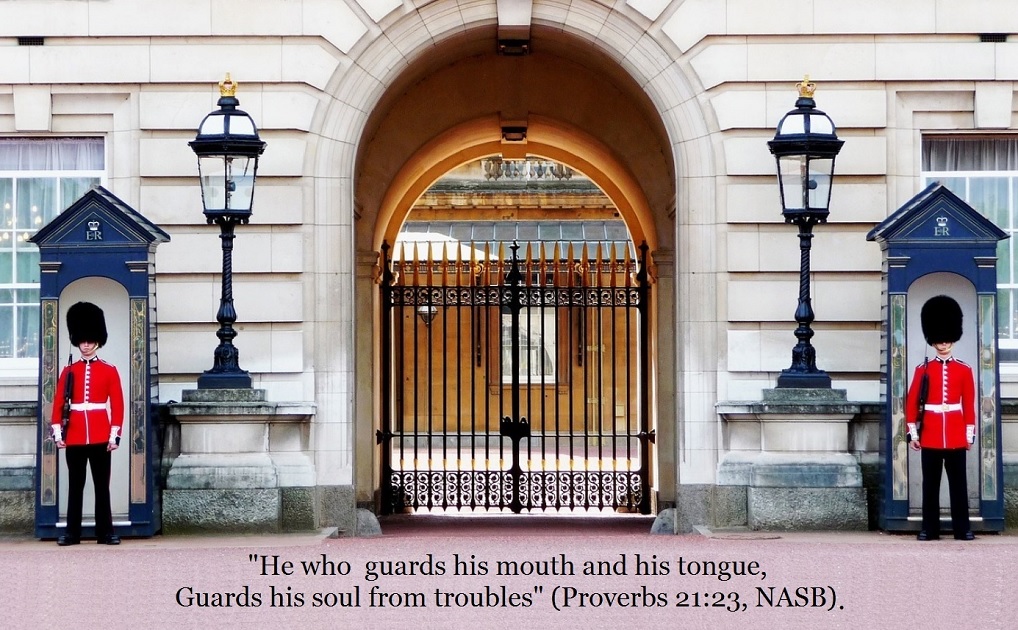
-3-
“I Will Guard My Ways, Lest I Sin With My Tongue”
Joe R. Price
“I said, ‘I will guard my ways, Lest I sin with my tongue; I will restrain my mouth with a muzzle, while the wicked are before me.’ I was mute with silence, I held my peace even from good; And my sorrow was stirred up. My heart was hot within me; While I was musing, the fire burned. Then I spoke with my tongue…” (Psalm 39:1–3).
Measuring our words with heavenly wisdom guided by God’s truth will keep us from sinning with our tongues (James 3:1-18). The irreverent words and ungodly deeds of the wicked can influence us to speak rashly. Even Moses fell before this temptation when Israel strove against God: “They angered Him also at the waters of strife, So that it went ill with Moses on account of them; Because they rebelled against His Spirit, So that he spoke rashly with his lips” (Ps. 106:32-33). James said to be “slow to speak, slow to wrath” as a hedge against unrighteousness (James 1:19-20). Doing this does not mean we are unaffected when confronted by wicked people. Sorrow stirred within David, and his heart was enflamed as he meditated on the evil before him. Like Jeremiah, God’s truth burned within David, and he would speak (Jer. 20:9; Ps. 39:3). But he measured his response with prayerful words of praise and prayer (Ps. 39:3-13). Instead of being provoked to sin with your tongue when evil people press upon you, hold your peace until you can respond with words of truth and the meekness of wisdom that honors God and pursues peace (James 3:2, 8-13, 18; Heb. 12:14).
— Via Articles from the Knollwood church of Christ, May 2021
——————–
-4-
God’s Demonstrations
Tom Edwards
For the video sermon with the above title, just click on this following link:
https://thomastedwards.com/wordpress/God’s_Demonstrations.mp4
——————–
-5-
News & Notes
Folks to be praying for:
Ginger Ann Montero is tentatively scheduled for a pacemaker June 4.
Rick Cuthbertson will be seeing a cancer specialist at Duke on June 3.
Deborah Medlock has 2 non-malignant nodules affecting her vocal cords. She also has a slipped disc in her back that has been affecting her walking and causing pain.
Bennie Medlock, in addition to his back pain, also has cataracts that he is scheduled to soon see a doctor about.
Also: Nell Teague (cancer), Danielle Bartlett (heart palpitations and swelling in legs), Ritt Rittenhouse (healing from a stroke and has a degenerative disc in his neck), Doyle Rittenhouse (neck, shoulder, and arm pain), and Joyce Rittenhouse (pain in knee).
Let us also continue to remember the family and friends of Jesse Welch who recently passed away.
Also our shut-ins: A.J. & Pat Joyner, Jim Lively, and Shirley Davis.
——————–
The Steps That Lead to Eternal Salvation
1) Hear the gospel — for that is how faith comes (Rom. 10:17; John 20:30-31).
2) Believe in the deity of Jesus Christ (John 8:24; John 3:18).
3) Repent of sins. For every accountable person has sinned (Romans 3:23; Romans 3:10), which causes one to be spiritually dead (Ephesians 2:1) and separated from God (Isaiah 59:1-2; Romans 6:23). Therefore, repentance of sin is necessary (Luke 13:5; Acts 17:30). For whether the sin seems great or small, there will still be the same penalty for either (Matt. 12:36-37; 2 Cor. 5:10) — and even for a lie (Rev. 21:8).
4) Confess faith in Christ (Rom. 10:9-10; Acts 8:36-38).
5) Be baptized in water for the remission of sins (Mark 16:16; Acts 2:38; 22:16; 1 Pet. 3:21). This is the final step that puts one into Christ (Gal. 3:26-27). For from that baptism, one is then raised as a new creature (2 Cor. 5:17), having all sins forgiven and beginning a new life as a Christian (Rom. 6:3-4). For the one being baptized does so “through faith in the working of God” (Col. 2:12). In other words, believing that God will keep His word and forgive after one submits to these necessary steps. And now as a Christian, we then need to…
6) Continue in the faith by living for the Lord; for, if not, salvation can be lost (Matt. 24:13; Heb. 10:36-39; Rev. 2:10; 2 Pet. 2:20-22).
——————–
Tebeau Street
CHURCH OF CHRIST
1402 Tebeau Street, Waycross, GA 31501
We are currently meeting for only our Sunday 10 a.m. worship service each week, due to the coronavirus situation.
evangelist/editor: Tom Edwards (912) 281-9917
Tom@ThomasTEdwards.com
https://thomastedwards.com/go/all.htm/ (This is for the older version of the Gospel Observer website, but with bulletins going back to March 4, 1990.)


